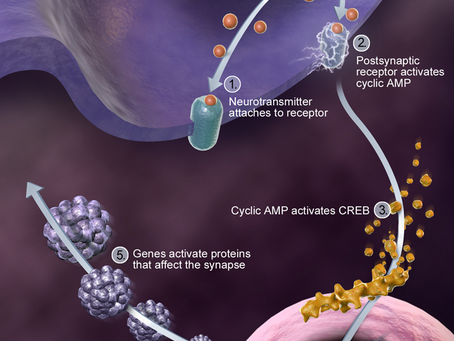top of page

Search
Brains


Unfolding Childhood Processing Speed: Neuroscience and Everyday Interventions
Processing speed is the brain’s tempo, not its talent. Processing speed shapes how kids learn, socialize, and grow, and people with Down syndrome tend to have slower processing speed. Many people with slow processing speed thrive with tailored interventions, smart IEP accommodations, and a colorful, nutrient-rich diet. Advocate thoughtfully for flexibility and understanding and cherish each child’s unique rhythm by valuing resilience over rushing.
Aug 29, 20258 min read


Unlocking Potential: Integrating Primitive Reflexes to Support Motor and Cognitive Development in Children with Down Syndrome
Primitive reflexes are automatic baby movements that usually disappear as the brain matures. When they don’t integrate properly, they can affect motor and cognitive skills. Many kids with Down syndrome show these retained reflexes, which can make balance, coordination, and attention harder. Therapies using gentle movements and sensory experiences to “turn off” these old reflexes and may be able to help kids move and learn better.
Aug 1, 20255 min read


Understanding Down Syndrome through the Lens of Neuroscience: Genome-Wide Dysregulation, Epigenetics, Inflammation, and Metabolism
Down syndrome affects not just chromosome 21 but impacts gene expression across the entire genome, alters how genes are epigenetically regulated and spatially organized, causes long-lasting brain inflammation, and disrupts cellular metabolism. These interconnected changes influence brain development and function, but new therapies targeting these areas offer hope for improved cognition and health.
Jul 29, 20256 min read


Synaptogenesis in Down Syndrome: Muddy Musical Passages and Interludes
When explaining synaptogenesis to other parents, picture the brain as a symphony orchestra. The synapses are the crucial musical passages, those precise moments and notes where one instrument hands the melody to another, creating harmony and flow. In Down syndrome, we see fewer and weaker passages; the melody struggles to move smoothly between sections, so the music doesn’t sound as clear or coordinated. The brain’s communication system isn’t broken, but plays a complex tune
Jul 25, 20257 min read


Altered Gliogenesis and Myelination, The Brain’s Support Network in Down Syndrome
Discover how changes in glial cells and myelination affect early brain development in Down syndrome. Learn why slower brain “wiring” impacts learning and memory, and how understanding this support network can empower families to follow through with therapies and patience.
Jul 18, 20254 min read


The Making of Brain Cells: Reduced Neurogenesis in Down Syndrome
Discover how reduced neurogenesis shapes early brain development in Down syndrome. Learn how fewer neurons and altered timing impact cognition, memory, and learning—and why its important for families to understand these changes and pursue early intervention.
Jul 15, 20256 min read


The Symphony of Early Brain Development in Down Syndrome: Why the First Notes Matter
Series note : There is a fantastic review (current state of scientific understanding) by Russo, Sousa, and Bhattacharyya out of...
Jul 11, 20253 min read


Neurons and Glia: You Need Them Both
Refresh your memory or learn more about gray matter. Neurons and glia work together to create a beautiful symphony of thought and action.
Jul 4, 20253 min read


How Brains Differ in Down Syndrome: From Cells to Cortex
In Down syndrome, underlying changes from the cellular level compound to produce noticeable differences compared to neurotypical brains. How do those differences relate to typical strengths and weaknesses in Down syndrome?
Jun 27, 20257 min read
Subscribe (monthly recap)
bottom of page
